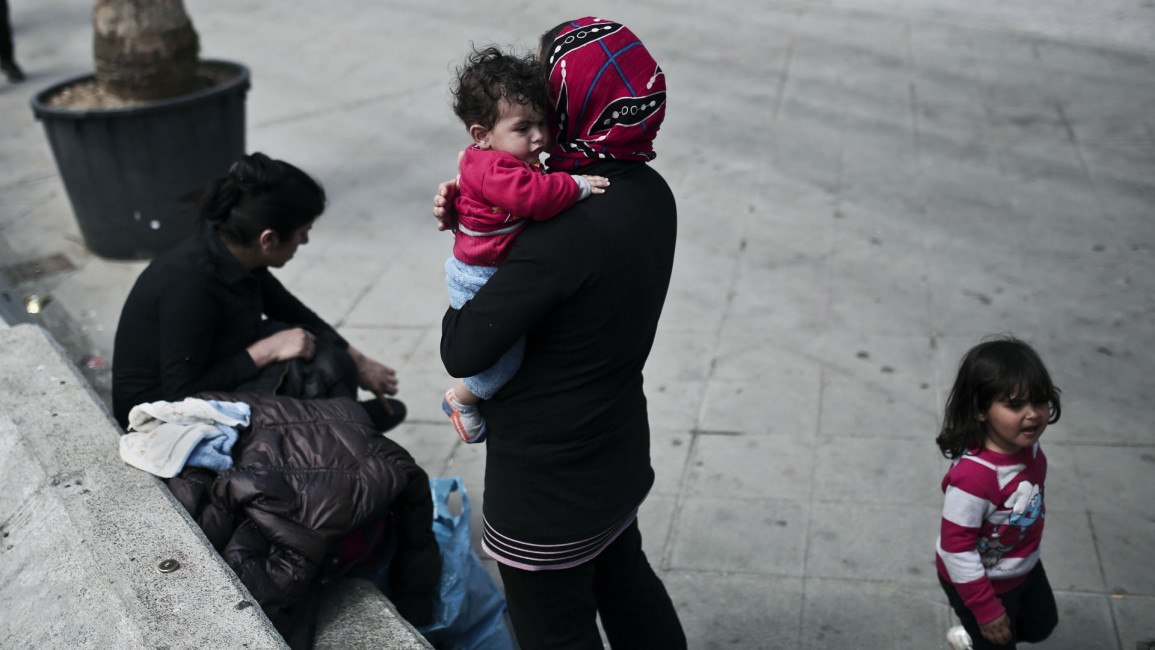
'Here they die slowly, at sea, they die fast'
During two meetings with a reporter on either side of the beginning of peak smuggling season in the Mediterranean, smuggling simsar (broker) Abu Ammar [not his treal name]talks smuggling and sending his children for a better future in Europe.
A portly Syrian in his 40s, originally from Homs, Abu Ammar has quietly done the trade in the Mediterranean since last season.
“When I felt I needed to travel, I started [working],” he said, before laughing about how easy it is to work as a simsar in Egypt. “It’s like buying something from the supermarket. Someone makes it known that there’s a trip. There’s people, like me, who say they want to travel and then the simsar takes them to the smuggler.”
“I have not taken people to the owner of the boat, but to the smuggler, yes — on behalf of Abu Uday.”
Abu Uday is supposedly the cousin of Abu Hamada, the key figure in Egypt’s Syrian smuggling network, according to British newspaper, the Guardian.
Abu Ammar knows full well that the people he works for are criminals. He criticises them for exploiting vulnerable Syrians.
“Abu Uday fooled a lot of Syrian people,” he says. “He took more than 15,000 euros from Syrians in Alexandria. Of course most of the trips they set up, they fail. And when a trip fails, they take the money from the Syrians. It’s not robbery — that would be better compared with what they actually do — they take them to a park, for example, and threaten them with guns and force them to hand over their money. Even the women.”
This seems to be how Abu Ammar rationalises the job.
He is just the first part of the network and bears no responsibility for what happens afterwards. In particular, he blames the Egyptian smuggling crews who actually run the boats to Europe — people he describes as a “mafia.”
But now he wants out.
Abu Ammar now works in documents, helping Syrians to acquire illicit visas to Europe, while he prepares to move his own family in the summer.
Abu Ammar says he will send his four children, none of them above 12 years of age, to Europe once the weather calms in June or July. He is using a “friend” (someone from a smuggling network) to take them — alone — before they then claim family reunification in Europe. “He has a doctorate in [smuggling],” he laughed. “He is a good man.”
Later, Abu Ammar will say that he trusts no one in the network. “They think of one thing only — money — and nothing else,” he said. “But I have to [do this]. I’m forced to send my children. There is no other choice.”
Abu Ammar says thugs have robbed him twice now — once his home was raided, the second time he was stopped in the street and forced to hand over cash at knife-point. He talks about it all matter-of-factly but his eyes communicate what he does not say. Abu Ammar looks worried.
And when justifying his reasons for wanting to leave, he points to the same reasons that tens of thousands of Syrians have crossed the sea from Egypt since 2013: security, education, work, prospects.
The metaphors are the same, too.
Crossing the Mediterranean is the trip of death, but remaining in Egypt without a proper job, education for your children and a future for your family — that is a slow death.
“Here they die slowly,” he said. “At sea, they die fast.”
Al-Araby is witholding the name of the reporter who conducted the interview for security reasons.




